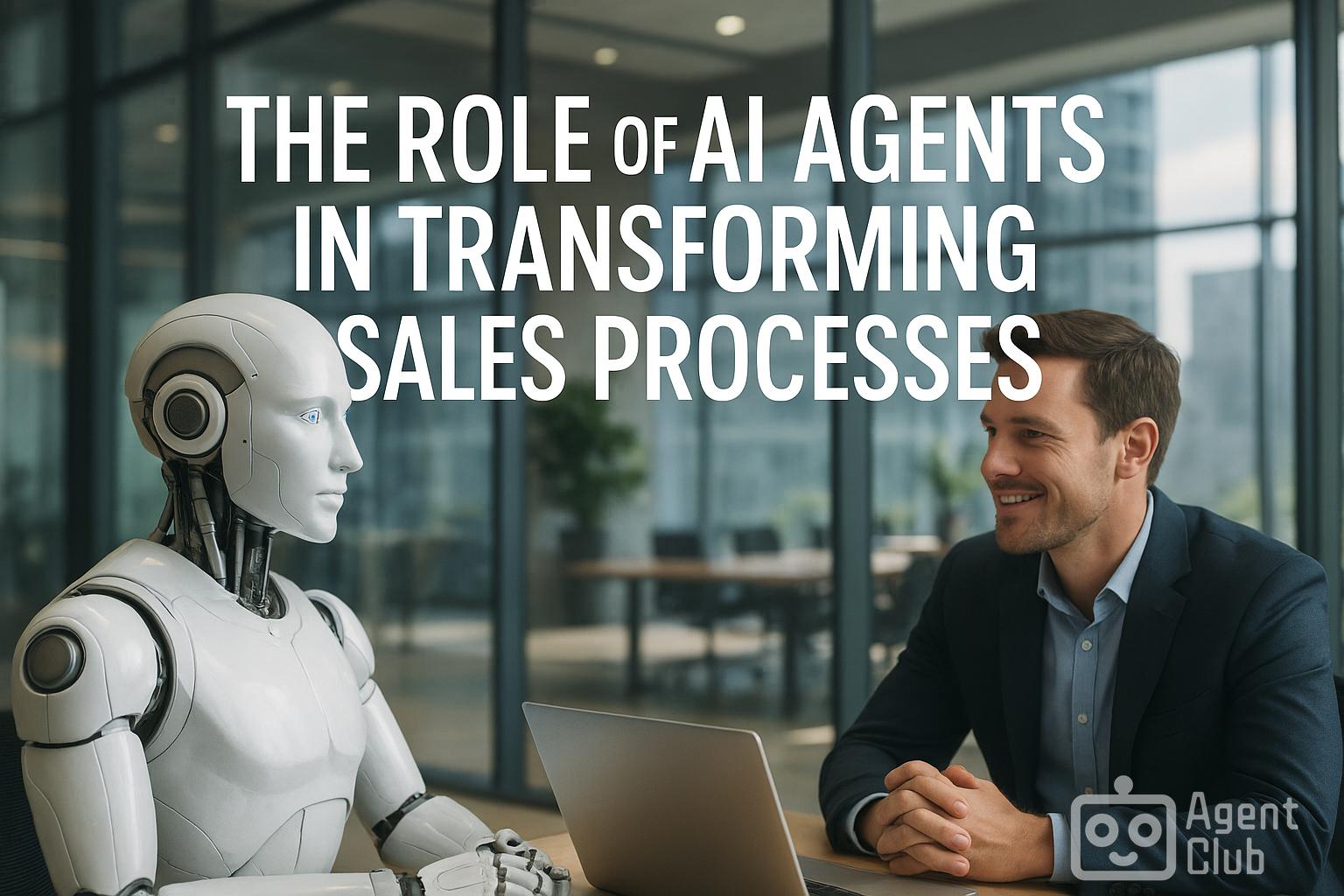The Role of AI Agents in Transforming Sales Processes

The integration of artificial intelligence (AI) into modern business frameworks has ushered in transformative changes, particularly in how sales processes are executed. AI agents, embodying the zenith of this technological evolution, bring unprecedented efficiencies to sales operations. These sophisticated systems are not just augmentations; they represent a leap forward in automating, optimizing, and redefining sales strategies.
Understanding AI Agents
AI agents are sophisticated software programs designed to perform tasks that traditionally require human intelligence. Within the sales domain, these agents can analyze large volumes of data to forecast trends, personalize customer interactions, and streamline sales workflows. The ability of AI agents to learn and adapt over time distinguishes them from conventional software systems. They utilize machine learning algorithms to discern patterns from datasets, thereby improving their efficiency and effectiveness continuously.
Enhancing Customer Engagement
One of the most significant contributions of AI agents to the sales process is their capacity to enhance customer engagement. By leveraging natural language processing and sentiment analysis, AI systems can facilitate more personalized interactions with customers. Real-time communication, coupled with the ability to gauge customer sentiment, allows businesses to tailor their responses and products to meet individual client needs effectively.
- AI agents can analyze customer data to suggest products or services that align closely with customer preferences.
- Automated follow-ups and reminders help maintain consistent communication, reducing the risk of lost sales opportunities.
- 24/7 customer support availability enhances customer satisfaction and loyalty by ensuring queries and issues are addressed promptly.
Optimizing Sales Strategies
AI agents are pivotal in optimizing sales strategies through predictive analytics and data-driven insights. By analyzing previous sales data, these agents can predict future sales trends, allowing businesses to adjust their strategies proactively. This predictive capability ensures that businesses are always one step ahead, minimizing lost opportunities and maximizing profitability.
Automating Routine Tasks
The automation of routine sales tasks is another critical area where AI agents provide immense value. Tasks such as data entry, updating CRM systems, and scheduling meetings can be efficiently managed by AI agents, allowing sales teams to focus on more strategic activities. This shift in workload not only enhances productivity but also reduces operational costs associated with human error and task redundancy.
- Automated data entry ensures accuracy and consistency in sales records, reducing the administrative burden on human resources.
- AI-driven scheduling tools coordinate meetings efficiently, considering time zone differences and participant availability.
Challenges and Future Directions
Despite their numerous advantages, AI agents are not without challenges. Data privacy concerns, the need for significant initial investment, and the potential for over-reliance on automation are some hurdles businesses must navigate. To fully harness the potential of AI agents, companies should focus on striking a balance between automation and human expertise, ensuring that AI serves as a complement rather than a replacement.


